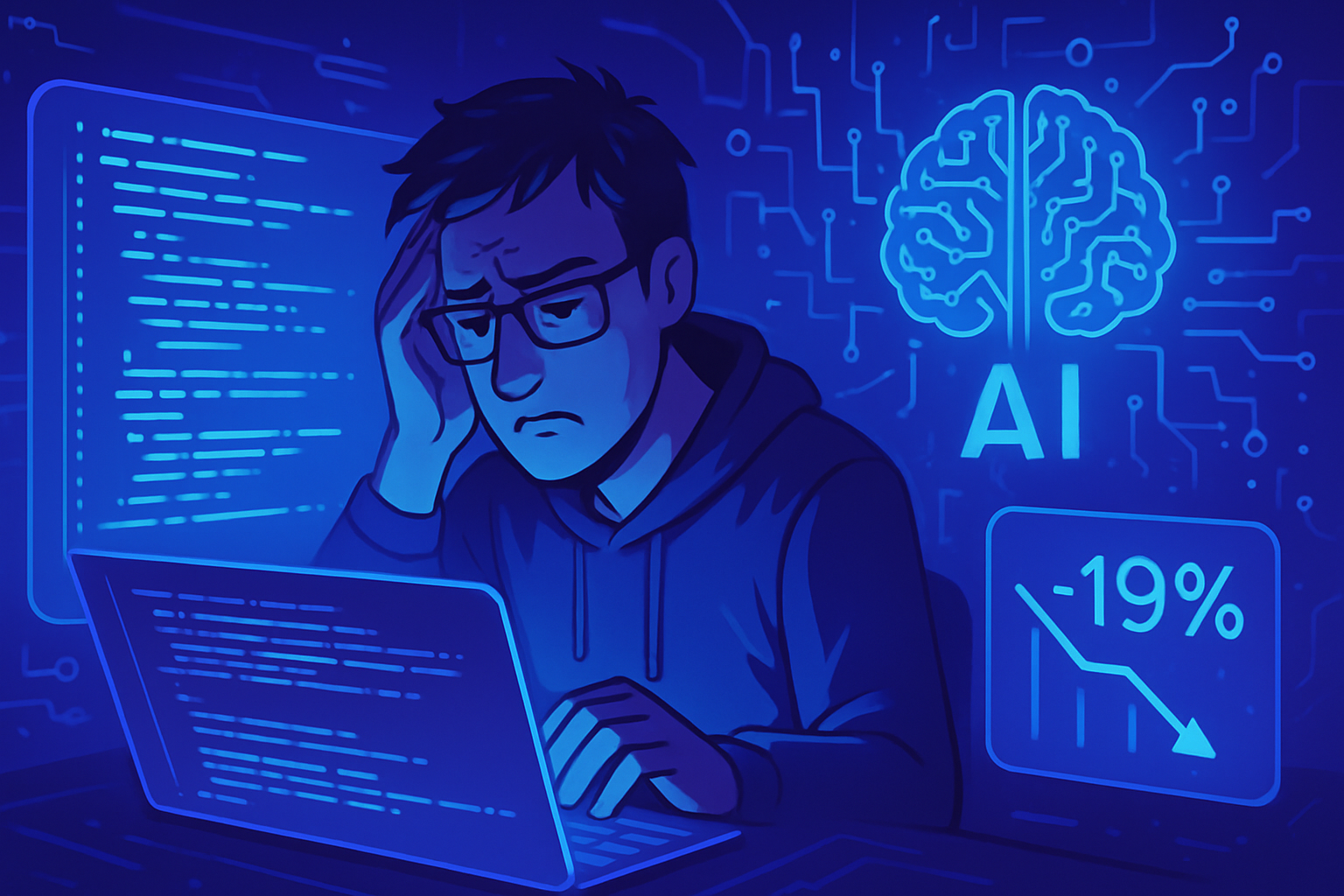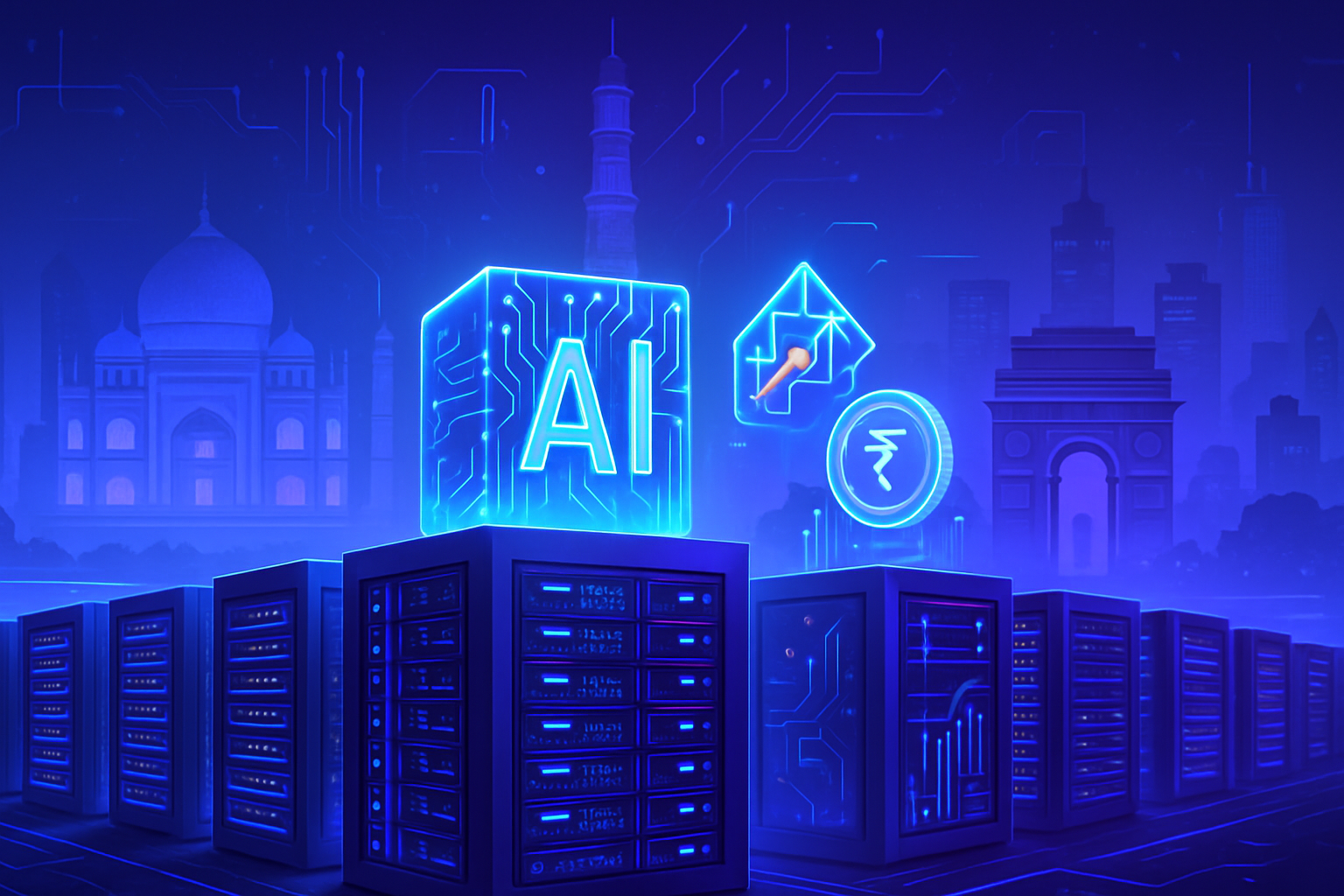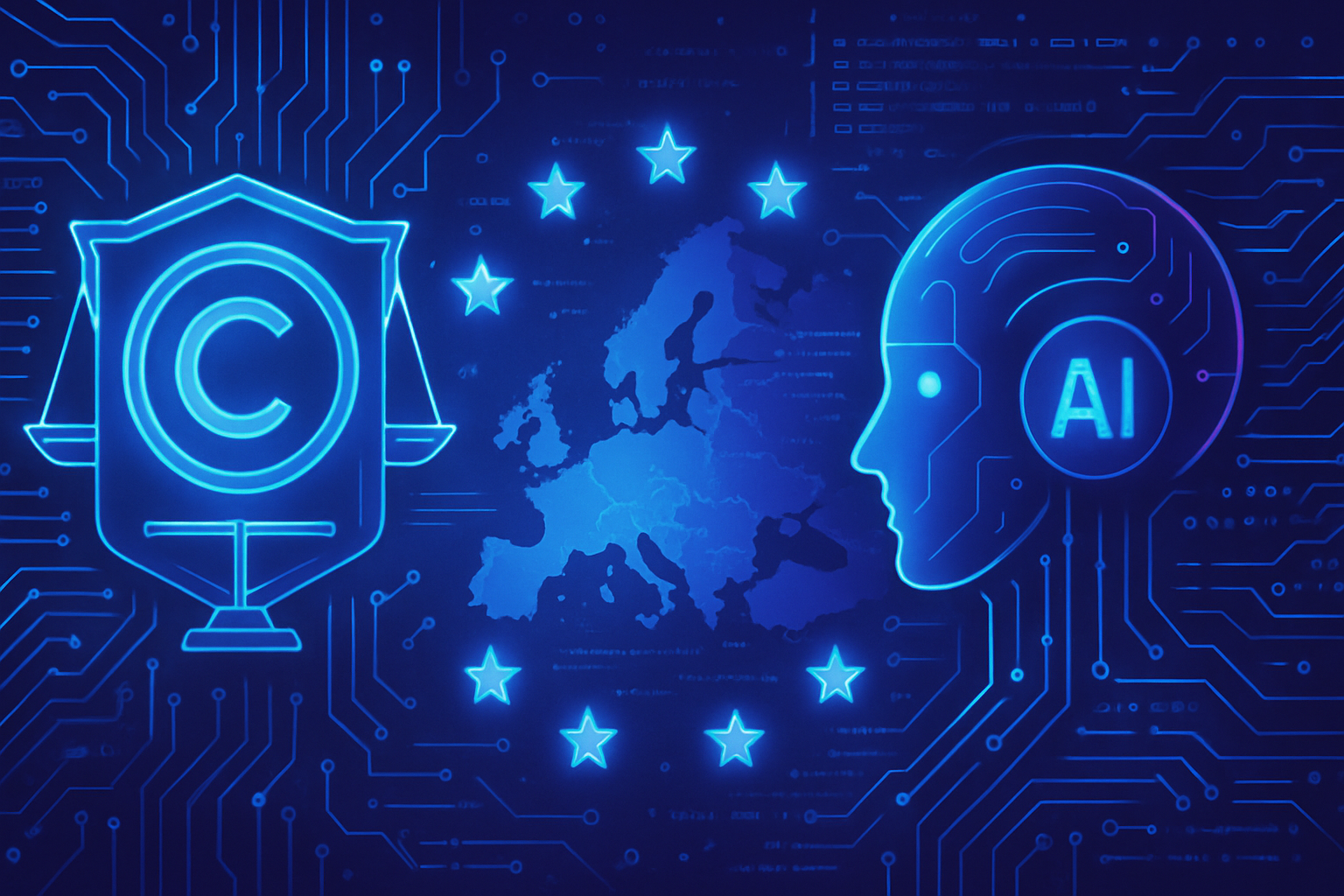A deep reflection is necessary in light of *the growing impact of artificial intelligence* on software development. Recent studies indicate that AI could, paradoxically, slow down developers’ efficiency by *19% when solving problems*. This phenomenon raises questions about the preconceived expectations of professionals who believed in a significant acceleration of their tasks. The contrast between *reality and expectations* becomes an essential concern to understand in order to grasp the future of the industry.
The results of the METR study
A study conducted by the research institute Model Evaluation and Threat Research (METR) reveals that AI-based programming assistants, far from optimizing developers’ productivity, seem instead to hinder their efficiency. The results published on July 10, 2025, show that developers using AI tools spent an additional 19% time solving complex problems.
The methodology of the study
For this study, METR recruited 16 experienced developers, active in open-source projects and familiar with AI. Each of them selected 246 representative tasks, such as debugging or adding features. The tasks were then divided into those performed with and without AI assistance, using the Cursor Pro tool, based on the Claude 3.5 and 3.7 models, deemed the most advanced.
Analysis of developers’ expectations
Even with optimistic expectations of a 24% acceleration, developers experienced a slowdown when using AI tools. This gap between expectations and reality highlights a significant disconnect. Despite this slowdown, 20% of participants continued to believe that AI was increasing their task execution speed.
Explanatory factors for inefficiency
Diverse factors explain this inefficiency. A strong expertise of developers in their projects allows them to better understand the issues encountered, making AI’s contribution less relevant. Indeed, they struggle more with less familiar problems.
Context deficit and tool reliability
The AI’s inability to grasp the surrounding context contributes to this inefficiency. AI struggles to integrate into complex environments, such as those of repositories with over a million lines of code, often created over a decade ago. Moreover, only 44% of the suggestions made by AI had received approval from developers, necessitating laborious revisions and corrections.
Implications for AI usage
The METR study raises questions about the integration of AI into software development processes. It emphasizes the need to adapt assistance tools to effectively meet developers’ needs. The potential learning effect of AI tools, such as Cursor, might manifest after several hundred hours of use, but the tested users had not reached that stage.
Future use cases for AI
Industry professionals must reevaluate the role of AI in their working methods. Market leaders, such as Microsoft and OpenAI, are developing customized solutions that could aim to circumvent these limitations. The future promises advances, but developers remain in search of a balance between autonomy and human assistance.
Frequently asked questions
What are the main results of the study on the impact of AI on developers’ efficiency?
The study conducted by METR revealed that developers using AI-powered assistants spent 19% more time solving problems, contradicting their initial expectations of a 24% increase in their efficiency.
What tasks were evaluated in this study regarding the use of AI?
Developers performed a list of 246 useful tasks, including bug fixes and the addition of new features, all of which could theoretically be completed in two hours.
Why did developers have disproportionate expectations regarding AI?
Developers believed that AI would allow them to significantly accelerate their implementations, but this excessive expectation led to a disconnect between their perceptions and the observed reality.
What factors were identified as causes of developers’ slowdown?
The study highlighted several factors, including a context deficit, high expertise of developers in their projects, insufficient reliability of AI suggestions, and the complexity of work environments.
What was the acceptance rate of the suggestions generated by AI in the study?
Only 44% of the suggestions generated by AI were approved by developers, leading to additional time spent correcting or revising the code proposed by the assistant.
Do developers still believe that AI improves their efficiency after observing the slowdown?
Despite the slowdown, developers continued to believe that AI had helped them speed up their work by 20%.
How can experience with AI tools like Cursor evolve over time?
METR suggested that a learning effect could occur after hundreds of hours of use, but the study participants had not reached that stage at that time.
What recommendations could be made for developers using AI tools?
Developers might benefit from better training on the use of AI tools, as well as recognition of the limitations of these technologies in complex environments.






